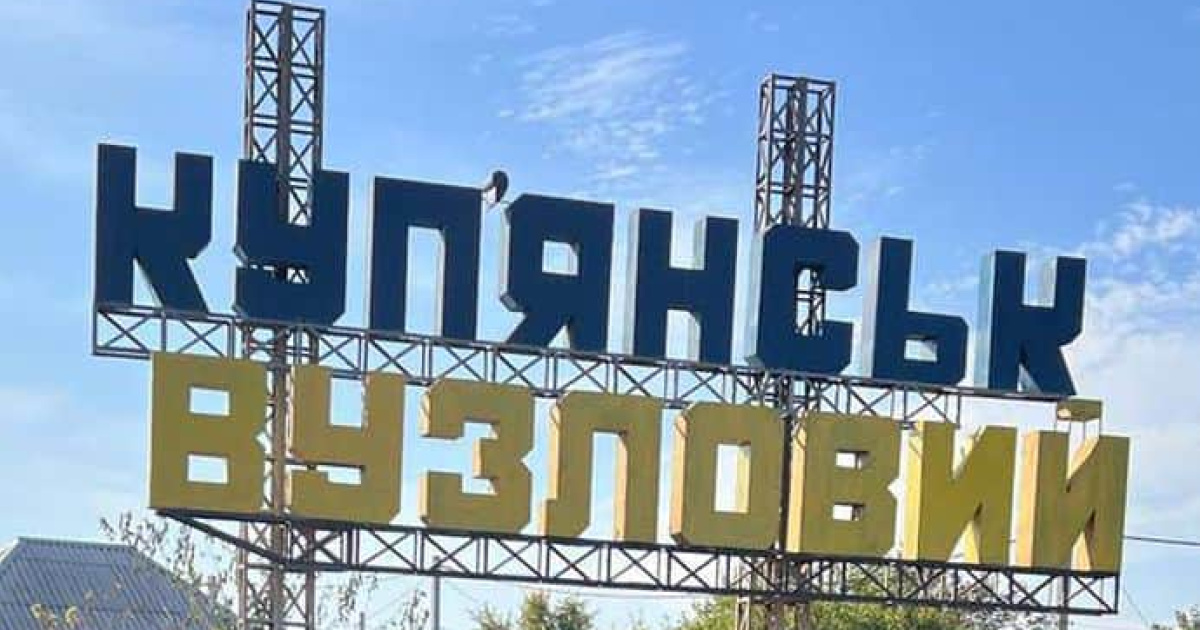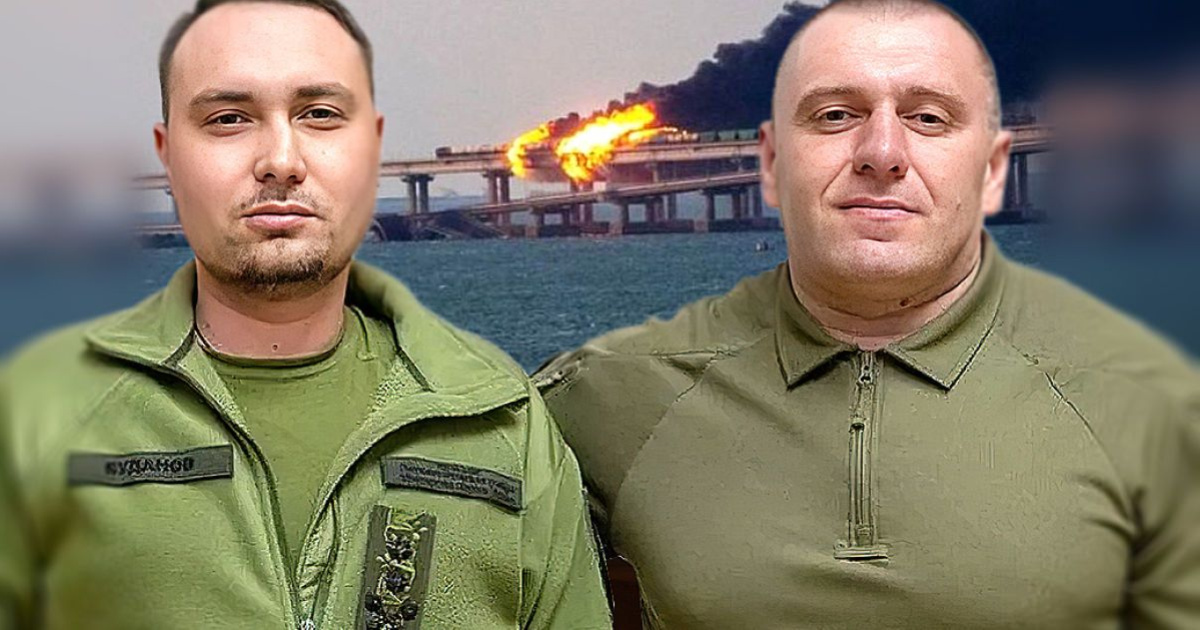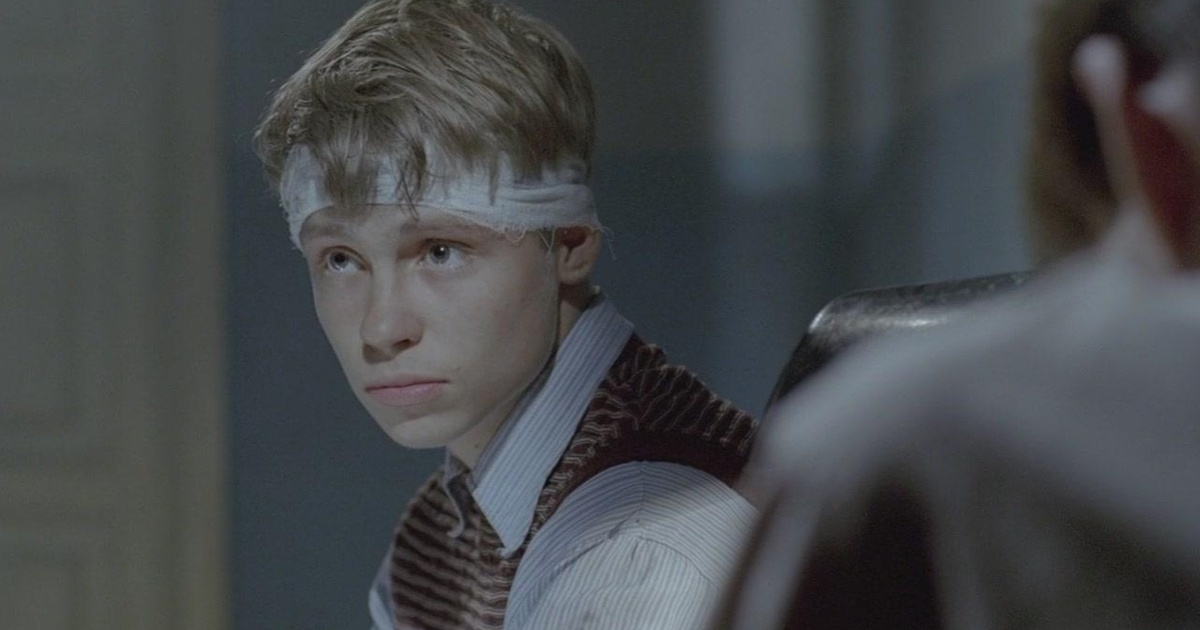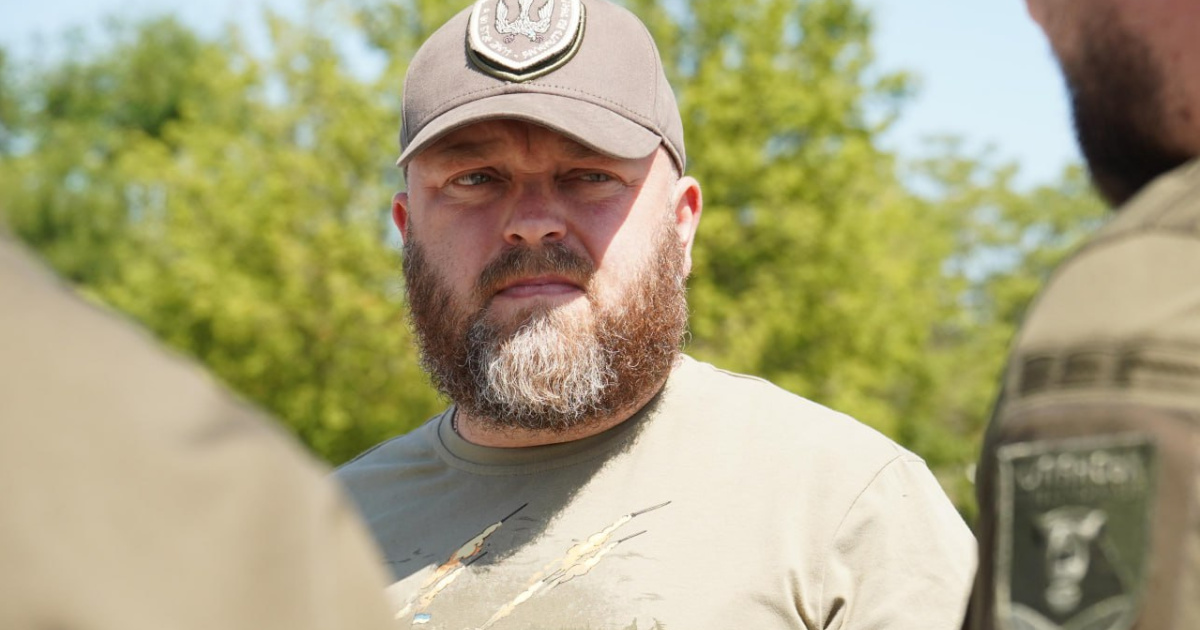
- In recent weeks, the number one topic in the news has been the prisoners of war who were returned during the so-called major exchanges. Can you say anything about the residents of the Luhansk oblast who were among them? About the urgent issues these people face and the assistance provided to them?
- Right now, the state and special services are working with them. Once they’ve fulfilled their role, we will step in. Our communities are implementing the relevant programs. In particular, in the Sievierodonetsk community, there is a provision for temporary housing compensation, support with integration, and much more. For now, I can only say that I was personally contacted by relatives of two exchanged prisoners, and we provided targeted help to meet certain needs. As of now, that’s all I can say. I suggest we return to this topic later.
The problems of those who want to pay taxes into the Luhansk oblast budgets: not much to boast about
- Over the past three years, a lot has been discussed regarding the problems of relocated businesses from the Luhansk oblast and, in general, those who still want to pay taxes specifically into the Luhansk oblast budgets. According to your predecessor Artem Lysohor, OstroV wrote more than a year ago that the Cabinet finally acknowledged these problems (refusals to cooperate by banks, partners, carriers, postal companies, etc.) and promised to do something at the legislative level. And after all these talks, just recently, my colleague Maryna Mukhina from the Starobilsk district called me and emotionally said something like: “What’s the point of the Luhansk tax offices if I can’t work while being registered with them? I want to pay taxes in the Starobilsk community — and because I’m registered with the Starobilsk tax office, I haven’t been able to receive my payments for several months! Bring this topic up again!” For Maryna and people like her, being registered specifically with our tax offices is a form of psychological support, a way to continue associating themselves with the Luhansk oblast, to believe in de-occupation and return. But working under such registration is truly impossible in many sectors — that’s a fact. What’s being done now so that these people can actually work while remaining registered in the Luhansk oblast tax offices?
- Regarding this, frankly, there’s nothing to boast about... I reported it to the Coordination Center on Frontline and Temporarily Occupied Territories. I reported it, a resolution was issued. That was about a month ago. We finalized all the speeches, and mine made it into the final protocol. Instructions were given at the level of relevant ministries to work on the issue. I’ll keep advocating for this matter going forward. Unfortunately, the state system is very immobile. If any maneuver happens within it, it’s extremely drawn out. The issue is definitely relevant, it definitely needs attention, and it will definitely remain in focus. As of now, we have a clarification from the Ministry of Justice stating that re-registration is not necessary... However, a number of legal acts say the opposite, including in matters of receiving grant aid. That’s why we’ve developed corresponding amendments to the legal acts and submitted them to the Government. We’re still waiting for feedback.
- Sorry, but I’m not just going to ask questions — I’ll also talk a lot and push back, because my personal and professional experience is quite typical for displaced people from the Luhansk oblast. So, here’s my general conclusion about individual entrepreneurs: basically, I should say to someone like Maryna Mukhina, “Maryna, screw all this and just re-register in, say, Khmelnytskyi”. Actually, it seems like this is a question for Zelensky. Like, should Maryna and I write him an open letter saying something like: “Mr. Zelensky! Are you even aware that the Luhansk oblast exists?” Sorry for the emotion, but that’s exactly how it feels. Lysohor said more or less the same thing you’re saying now — a year and a half ago. Meanwhile, individual entrepreneurs need to work, pay taxes... So my conclusion is: this is some kind of trap.
- In a rule-of-law state, it can’t be that President Zelensky just calls a bank and says, “Hey, remove those barriers in your system”.
- But can it be that in a rule-of-law state there’s a functioning tax office, but if you’re registered there, no one can legally work with you?
- All I can do here is answer what the administration is doing to solve the problem. And I’ve given that answer. I’ll add that even now, there are still businesses registered specifically with the tax authorities of the Luhansk oblast.
The feasibility of relocated administrations and institutions
- Posts and comments questioning the purpose of the relocated administrations of our oblast keep popping up online. Personally, I see the value in their work—I regularly speak on this topic, and then I get accused of allegedly being paid by you for doing so. Please, once again, justify your personal opinion: why should the relocated Luhansk oblast administrations, utility companies, medical institutions, and educational establishments be preserved?
- To be honest, I’m tired of reciting the same narrative, the same position. It saddens me that I even have to explain this. And even more so that I have to explain it to people from the Luhansk oblast itself.
There are two components to the existence of administrations at the current moment. First—we haven’t stopped helping or communicating with our people. Our communities actively cooperate and assist their residents. Some are more active, others less so—it depends on the resources they have. But the connection is there. Many IDPs don’t want to associate themselves with the host communities. And that’s fair, that’s normal. Many IDPs (probably the majority) want to identify as the Luhansk oblast residents. That’s a very valid, strong, firm, steel-like position, I’d say.
Back to the question—if you want to be a Luhansk resident and not associate with the host community, that means you want to receive state services through the lens of your own administrations. Our administrations implement a ton of social programs, they’re developing resilience centers. And if anyone thinks this is just a pretty façade—it’s not. All those haters who question the need for hubs, resilience centers, or any other social projects should simply go and visit them. See for themselves that people gather there, connect, and that all of this needs support. In our hubs, people receive over 30 types of different services. They feel like they belong there, that they matter. Unfortunately, we receive information that in some host communities our IDPs don’t get the level of services and attention they need. That’s also part of my job. I have to work with the host communities so that our people are treated equally, with equal rights. And the state policy is aimed at integrating such people into new communities. I genuinely believe that the war has finally proven to all Ukrainians that there is no right-bank and left-bank Ukraine, no Easties and Westies. We are all Ukrainians. And now, as we’ve been forced to mix across regions, people in the western regions have seen that folks from the east are just like them, also Ukrainians who speak the language, who see Ukraine as their country—that there is no divide, despite all the years of that division being forced on us... Sorry, I got sidetracked. So, the first aspect of the administrations' work is meeting the needs of their community’s residents.
Alongside this, we have 11 communities from four districts whose territories have not had military administrations established. These communities have been occupied since 2014. And despite the fact that we currently lack a legal mechanism to provide their residents with social support, we have already started (I signed it at the end of June) a wellness program for children specifically from those districts that were occupied in 2014.
- But most of those children have already grown up by now.
- And do you think that someone who was 20 years old in 2014 couldn’t have had a child?
- So, if I and others like me—IDPs from these 11 communities that have been occupied since 2014—have grandchildren tomorrow, will they be eligible for benefits and be able to apply for aid provided under such programs? Will they also be considered displaced persons from the same community? I’m using my own case as an example—because it’s a typical one.
- What is the place of registration for your children?
- They don’t have any registration at all—like many IDPs of their generation, they have so-called “homeless certificates” attached to their passports confirming the absence of registration. At the same time, their IDP certificates state that they are displaced from Kadiivka. Under the new administrative division, that’s Alchevsk district.
- Yes, children of such individuals can be included in this and similar programs.
Next, regarding displaced persons from communities occupied since 2014—we need to move on to veterans from those territories. Same principle. We’re reviewing the program, thinking about how to do everything legally so there are no questions from the Ministry of Finance. That is, the communities relocated since 2022 are providing for their population, and I’ve set a goal to find ways and mechanisms to support people from those four districts that have been occupied since 2014.
Now to the second component of the administration's work, which is also extremely important. There are currently a lot of people, including children, in the territory of the Luhansk oblast. I don’t want to cite absolute numbers right now.
None of us knows when and under what circumstances de-occupation will take place. It could happen tomorrow. And a very simple question arises for all the skeptics: who is supposed to establish Ukrainian governance in that territory? Who should provide social services to vulnerable groups of the population? Who should repair the pipes, utility equipment, build roads? Of course, it should be the Oblast Military Administration and the administrations of the settlements. That’s why it’s critically important to preserve all of this. That well-worn story about the personnel reserve is not just empty talk. There’s a huge rationale and planning behind those words. The strategy for the development of the Luhansk oblast includes several scenarios, and in the positive scenario, we must go in and provide a vast range of services to a massive population. We need to understand that. If there’s no Luhansk Oblast Administration and no local administrations, who will go and establish authority? No one. And what will we have then? The whole world will see people coming out with posters saying, “Give us back the russian world”.
- Why do awards and distinctions related to the almost fully occupied Luhansk oblast make sense? There’s a lot of reproach and criticism on this topic right now, including from my colleagues. Like, “there’s no oblast, but there are awards”. To a certain extent, your previous words answer this.
- Yes. I also want to point out that non-material means of motivation are incredibly important and have a significant impact on people. And honestly, I don’t care how much a badge costs—so long as it’s beautiful. And when I hand it to a soldier, he smiles and knows his work isn’t in vain. And I don’t mind military awards. I don’t mind awards for civil servants who’ve gone through their challenges in work and life. I don’t mind awards for outstanding or less prominent Luhansk residents. I don’t begrudge Luhansk oblast awards for those who do something for the Luhansk oblast—to whatever extent they can.
- Have you carried out any staff optimization in the Luhansk Oblast Military Administration and its substructures—like when you fired about 20 employees from the Sievierodonetsk City Military Administration who were essentially not doing any work?
- The head of a City Military Administration has far more levers of influence over salaries than the head of an Oblast Military Administration. In the civil service, it’s a slightly different situation. Here, bonuses are regulated from one to thirty percent—nothing too dramatic. Even with that figure, I’ve already “played around” a bit, and for those departments that, in my opinion, are not currently operating at full capacity, I’ve introduced a differentiated approach. Previously, the salary structure across all departments was the same. Right now, I’m voicing my expectations to my subordinates. Some are trying to adapt, learn something new, and understand what I want from them. And some are already slowly leaving (their jobs in the oblast administration – OstroV). So I hardly even have to make drastic staffing decisions. There’s simply a natural, organic outflow of people who realized that “just sitting it out” won’t work.
We need to start a project-based approach. Every employee in the administration must understand the key point—what benefit this project brings to the people of the Luhansk oblast. Big, small, medium—it doesn’t matter. But we must shift to project-based work, with clear timelines, specific tasks related to the implementation of the project, and a measurable outcome. Once they understand that even as an employee of the transport department, they can actually carry out projects to help our people from Luhansk... For example, some people are working in the city of Dnipro... If I were in that department, I’d be “bugging” the entire Dnipropetrovsk Oblast Administration and Dnipro City Council to secure some additional transportation benefits for our IDPs. That’s just fantasy at this stage, of course, but even departments whose names might sound useless right now (like transport, agro-industrial complex, etc.) even they can do something for our displaced citizens. But I won’t be inventing projects for them, and they’ve already figured that out. They need to generate ideas and carry them out. Then, Luhansk residents will feel that something is happening, something is being done for them. And when someone asks, “Why do we even need an agro-industrial department?”—we’ll be able to say, “They implemented this and that project”. And the question will disappear on its own.
On housing: the overwhelming majority want compensation
- Explain “in simple terms” why it’s not as easy as it seems to provide IDPs with housing – even social housing? Recently, OstroV published legal clarifications regarding compensation for destroyed and damaged housing. These clarifications indicate that for IDPs from the entire territory of the Luhansk oblast without exception, receiving such compensation is currently impossible – and this is an objective fact that has nothing to do with the oblast administration or its head. Despite this, on social media, IDPs are actively demanding that the regional administration and you personally help them obtain compensation or housing in general. There is social housing available for IDPs from the Luhansk oblast, but people who can afford to rent simply don’t go there, preferring the possibility of maintaining their own separate lifestyle. And in the end, that social housing often ends up half-empty – like the example you once gave of the dormitory in Novomoskovsk, the Dnipropetrovsk oblast.
- Right now, there’s a narrative about 4.5 million IDPs existing. Of course, it’s impossible – for any country in the world – to provide housing to 4.5 million of its citizens. We can only begin solving this problem with the state when we understand the real number of IDPs, not the declared one, and the real need for service housing. Who is actually ready to go to a hypothetical Bohuslav in the Kyiv oblast to live in a newly built house, abandon their current life, take their children, and once again try to settle in? Maybe some people will. But most likely, as a result of research, we’ll realize that the absolute majority of IDPs want to receive compensation. Because people don’t want to rebuild their lives from scratch again, and that’s normal. So, a very simple question arises from this. If we suddenly get the resources and start randomly building homes for IDPs from the Luhansk oblast across different settlements in Ukraine – what category of IDPs will be willing to go there? Once again, into the unknown, with no job, no idea where their kids or grandkids will study. It’s a massive challenge. That’s why, in response to the complaints like “why doesn’t the Luhansk Oblast Military Administration build...” – I always have an answer. I can build service housing for doctors, for example – because they work at specific facilities, we know where they are, and we understand their needs. Same for teachers in case of in-person work. But I don’t know where to build a house – say, a five-story, four-entrance building. And more importantly – how will I solve the needs of 200,000 people, if I build even ten such houses? That’s a very simple question, very simple. And here we need to appeal to people’s awareness. We need to say it, and say it honestly: “Socially vulnerable groups – are they my responsibility? One hundred percent mine. Veterans? Absolutely. Teachers and doctors? Yes”. I might be missing someone here, but the general point is clear: there are categories of people I must prioritize when it comes to making the necessary decisions, including housing. And two-thirds of IDPs are people who have jobs, rent apartments, visit each other... Let’s be honest: I can’t provide housing for them. I don’t have the resources or the authority to do that. And it would be a misuse of resources. Even if we (though this is not even legally possible) built 20 houses... And then what?
- The point is clear: working, active people (and you say they make up two-thirds), who have settled over the past three years in, say, Ternopil or Dnipro in rented housing, are unlikely to suddenly drop everything again just to actively populate a five-story apartment block in, let’s say, Nemyriv in the Vinnytsia oblast. It’s extremely hard to imagine how such a building in, for example, Oleksandriia in the Kirovohrad oblast would suddenly be filled with Luhansk IDPs from all over the country, leaving behind jobs, connections, schools, etc. And the half-empty dormitory in Novomoskovsk illustrates this perfectly.
- What’s the other sticking point here? This is also very important to understand. As long as I carry the burden of “...all two hundred thousand IDPs are yours”, I don’t know what to do. It would be right if I honestly and openly said what I just said, and people would just as honestly respond: yes, we understand everything, please take care of the socially vulnerable groups, and we will wait for victory and reparations, so we can receive material compensation for our housing. That would be an honest conversation.
- Regarding compensation – I already mentioned, citing lawyers, that right now people from the Luhansk oblast can’t receive it. The only thing specialists advise is to enter all data into the appropriate register. By the way, they noted that there’s a law that would simplify the process of recording destruction in occupied territory – it would make site visits by commissions optional, and then owners of housing in occupied territories could also apply for compensation. And that law, according to the lawyers, has been “sitting on the President’s desk” since December – waiting for a signature...
- Why hasn’t it been signed? It’s very simple – there are no resources to support this law. Signing such a law now would mean triggering a collapse. When there are resources to support it, the law will be put into action.
About personal life
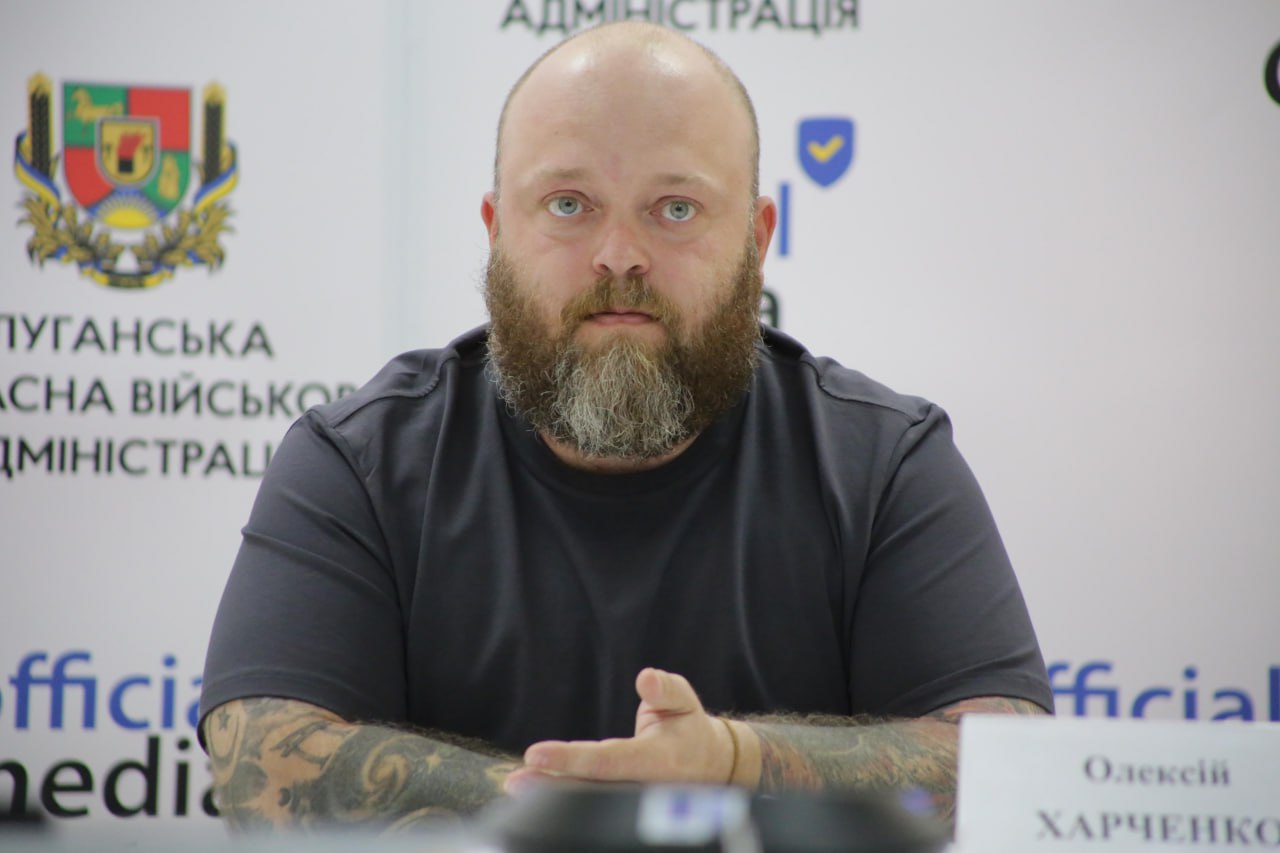
- In the context of social media attention to your appearance, to you as a person — if possible, tell us about your family, your personal life.
- I'm not married, I have two children.
- What can you add regarding your interactions with activists and haters who, due to the occupation of the oblast, have now fully “relocated” to social media?
- I’ll share a very telling story — I hope it makes it into the publication. One activist reached out to me personally. Said there’s a guy, a soldier, not getting any help from the local administration, he lost both legs, very expensive rehab for a month… I said, alright. Later I call the activist and say: “We’ve arranged free inpatient rehabilitation in Dnipro”. The activist says: “Okay, but the guy’s at the other end of Ukraine”. I say: “Our ambulance will go and pick him up”. He says: “They won’t release him from the unit”. I say: “Already called the unit commander, he’ll be released”. Pause… He says: “I’ll call you back”. He calls back and says: “Well, the issue somehow got resolved another way, thanks”. And what do you think — did the activist write about this case on social media? No.
By Yuliia Sabaieva, journalist at OstroV

